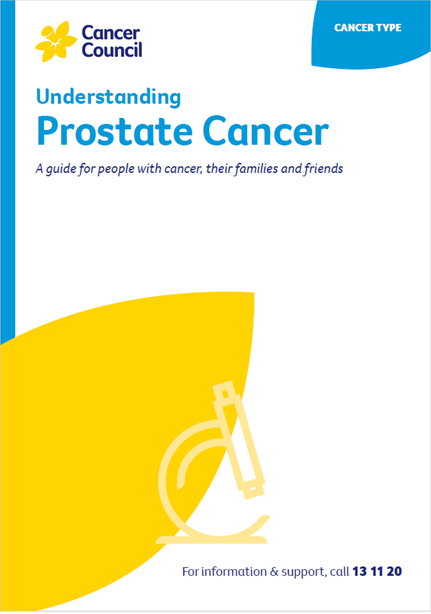- Home
- Prostate cancer
- Diagnosis
- Tests
- Biopsy
Biopsy
Depending on the results of the MRI scan, your urologist may suggest a biopsy to remove tissue samples from the prostate. They will explain the risks and benefits of a prostate biopsy and give you time to decide if you want to have one. With specialised MRI scans available, your doctor may suggest you do not need a biopsy.
Learn more about biopsies.
How is a biopsy done?
There are 2 main ways to perform a prostate biopsy, both of which are normally done under general anaesthetic:
| transperineal (TPUS or TPB) biopsy | a small ultrasound probe is inserted into your rectum. An image of the prostate appears on a screen and helps guide a needle which is inserted through the skin between the anus and the scrotum |
| transrectal (TRUS) biopsy | the needle is inserted into the prostate via the rectum |
During either procedure, the doctor may take a number of samples from different areas of the prostate and also remove a sample from any suspicious areas seen on the MRI.
What happens after the procedure?
Depending on the type of biopsy you have, after the procedure you may see a small amount of blood in your urine or bowel movements (poo) for a few days, and blood in your semen for a couple of months. After a TPUS biopsy, the risk of infection is extremely low.
There is a greater risk of infection with a TRUS biopsy, but the risk is still low. Your doctor may suggest taking antibiotics before or after a biopsy if they think you may be at risk of infection.
The biopsy samples are sent to a laboratory, where a specialist doctor called a pathologist looks for cancer cells in the tissue.
Waiting for the results can be stressful. For support, call Cancer Council 13 11 20.
Podcast: Tests and Cancer
Listen to more of our podcast for people affected by cancer
More resources
Prof Declan Murphy, Consultant Urologist, Director – Genitourinary Oncology, Peter MacCallum Cancer Centre and The University of Melbourne, VIC; Alan Barlee, Consumer; Dr Patrick Bowden, Radiation Oncologist, Epworth Hospital, Richmond, VIC; Bob Carnaby, Consumer; Dr Megan Crumbaker, Medical Oncologist, St Vincent’s Hospital Sydney, NSW; Henry McGregor, Health Physiotherapist, Adelaide Men’s Health Physio, SA; Jessica Medd, Senior Clinical Psychologist, Department of Urology, Concord Repatriation General Hospital and Headway Health, NSW; Dr Gary Morrison, Shine a Light (LGBTQIA+ Cancer Support Group); Caitriona Nienaber, 13 11 20 Consultant, Cancer Council WA; Graham Rees, Consumer; Kerry Santoro, Prostate Cancer Specialist Nurse Consultant, Southern Adelaide Local Health Network, SA; Prof Phillip Stricker, Chairman, Department of Urology, St Vincent’s Private Hospital, NSW; Dr Sylvia van Dyk, Brachytherapy Lead, Peter MacCallum Cancer Centre, VIC.
View the Cancer Council NSW editorial policy.
View all publications or call 13 11 20 for free printed copies.

